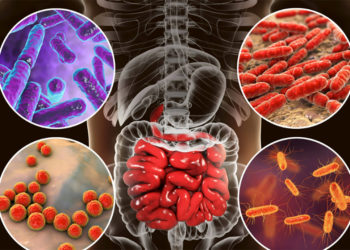Feeding your brain properly
Food, and more specifically, the nutrients it contains, exert an influence upon our moods, cognition, memory, and critical reasoning through psychological, biochemical, and physical connections linking what we consume to our brain. Our brains function optimally when supplied with high-quality nourishment. Although a despondent state might tempt us towards indulging in ice cream, the reality is that a bowl of fruit is more likely to uplift our spirits. Consuming nutritious foods rich in vitamins, minerals, antioxidants, amino acids, and fiber not only nourishes the brain but also shields it from oxidative stress, those deleterious ‘waste products’ that can harm cells.
The brain is perpetually engaged in activity. It governs our thoughts, movements, respiration, and heartbeat, necessitating a constant provision of sustenance. This sustenance is derived from the food we ingest, underscoring the significance of its quality. What we eat directly influences the structure and function of our brain and, ultimately, our emotional well-being.
The ramifications of an inferior diet
Harmful substances present in processed and refined foods or diets abundant in sugars can be detrimental to the brain. In addition to impairing insulin regulation, they foster inflammation and oxidative stress. A multitude of studies have established a correlation between a diet rich in refined sugars and impaired brain function, as well as an exacerbation of mood disorders like depression.
These free radicals and malevolent inflammatory agents circulating within the confines of the brain contribute to the damage of brain tissue, yielding significant consequences. The prevalent Western diet, characterized by this sort of dietary pattern, while neglecting fruits and vegetables, contributes to inflammation and is frequently linked to conditions such as heart disease, hypertension, and depression. This is attributable to pro-inflammatory foods, like fried items, sugary beverages, refined sugars, and processed meats, which significantly amplify inflammation and oxidative stress, while also deleteriously impacting beneficial intestinal flora.
Enhancing mental well-being through diet
Research has compared ‘traditional’ diets, such as the Mediterranean diet, with the customary ‘Western’ dietary regimen, and has revealed that adherents of traditional diets experience a 25-35% lower risk of depression. Scientists attribute this disparity to the consistent consumption of vegetables, fruits, unprocessed grains, fish, and seafood, accompanied by only modest quantities of meat and dairy products. Moreover, these traditional diets abstain from processed, refined foods and sugars, which are staples of the ‘Western’ diet. Many of these unprocessed foods are also fermented, thus serving as natural probiotics.
The intricate structure and function of the brain necessitate a substantial amount of energy and nutrients supplied by these traditional diets. In fact, certain foods may be likened to brain tonics, capable of enhancing mental well-being. However, the benefits are contingent on the combinations of all the foods consumed.
Here are some pivotal nutrients that impact brain chemistry:
- Vitamin C: Found in fruits and vegetables like tomatoes, kiwi, broccoli, radishes, citrus fruits, and berries.
- Vitamin E: Present in hazelnut oil, almonds, sunflower seeds, hazelnuts, peanuts, and wheat germ.
- Beta-carotene: Abundant in dark green and orange vegetables such as spinach, kale, carrots, butternut squash, and sweet potatoes.
- B vitamins: Available in whole-grain cereals, poultry, eggs, legumes (like lentils, black beans, and kidney beans), leafy greens, and fortified cereals.
- Vitamin D: Found in oily fish and egg yolks.
- Zinc: Present in shellfish, legumes, seeds, nuts, meat, eggs, whole grains, and cocoa.
- Iron: Abundant in red meat, poultry, oysters, legumes, leafy greens, quinoa, pumpkin seeds, fortified cereals, and dark chocolate.
- Omega-3 fatty acids: Found in oily fish, seafood, flax and chia seeds, rapeseed/nut/cameline oil, and walnuts.
For fostering a healthy microbiota, one should consider including barley, oats, legumes, Jerusalem artichokes, asparagus, green bananas, garlic, onions, chicory root, and fermented products such as yogurt, kefir, kimchi, and natural sauerkraut.
Neurotransmitters
Certain nutrients are indispensable for the development of neurotransmitters, the chemical messengers responsible for transmitting information within the nervous system. Inadequate supply of these nutrients can hinder the production of mood-enhancing neurotransmitters like dopamine and serotonin, leading to fatigue, mental exhaustion, and depression. These same nutrients also play a crucial role in sustaining a healthy balance of intestinal bacteria, ensuring eubiosis. This is significant because in a well-functioning microbiota, bacteria collaborate to generate substances essential for the proper functioning of the brain, the immune system, and the hormonal system, given that the majority of serotonin production occurs in the gastrointestinal tract.
Serotonin, a neurotransmitter that regulates sleep, appetite, mood, and pain inhibition, is produced primarily in the gut, which boasts a lining of a hundred million nerve cells or neurons. It is evident that the intricate workings of the digestive system do not solely serve the purpose of digesting food but also influence our emotions. Furthermore, the activity of these neurons and the production of neurotransmitters are profoundly affected by the billions of ‘beneficial’ bacteria constituting the intestinal microbiome. These bacteria play an integral role in maintaining our health by protecting the intestinal lining, forming a barrier against toxins and harmful bacteria. This, in turn, mitigates inflammation, improves nutrient absorption, and activates the neural pathways connecting the gut and the brain.
A diverse, wholesome diet provides the body with essential nutrients, diminishes inflammation, and nurtures a flourishing population of healthy intestinal bacteria. In sum, nutrition is as vital for preserving the health of the brain as it is for maintaining heart health or athletic performance. The overall quality of one’s diet is pivotal in promoting well-being, both mental and physical. Feeding your brain appropriately is the key to feeling better.
Advice
Allcook Kitchen’s weekly food box delivery service addresses the common challenge of busy schedules in intellectual professions. Their menus, rich in brain-boosting nutrients, offer both nourishment and culinary enjoyment. With food box delivery available throughout Switzerland, Allcook Kitchen provides a convenient solution for those seeking optimal brain health and well-being amid their demanding workloads.
Source :
https://www.ncbi.nlm.nih.gov/pmc/articles/PMC2805706/
https://www.ncbi.nlm.nih.gov/pmc/articles/PMC6147775/





